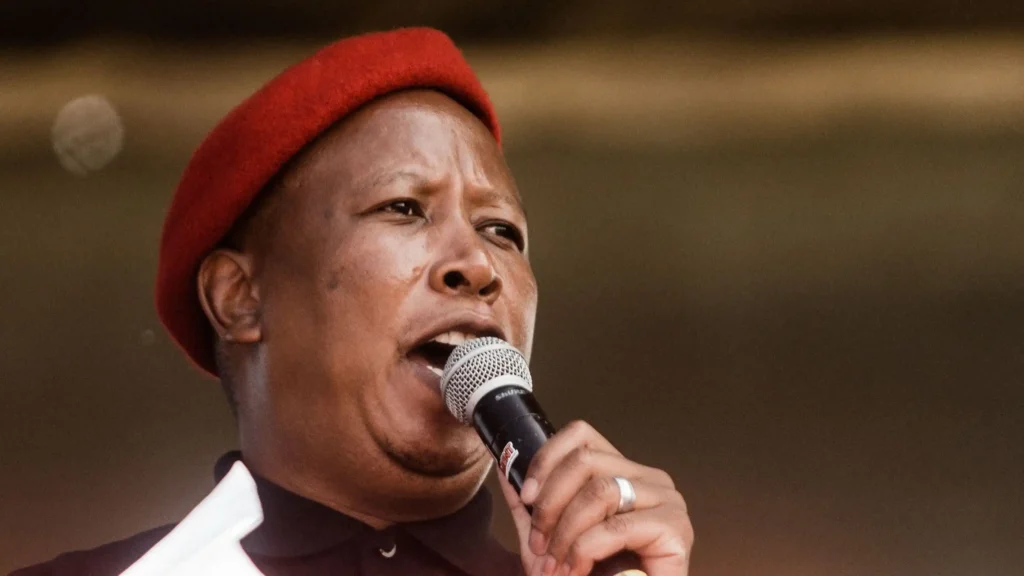The South African opposition leader Julius Malema has been found guilty of hate speech by the country’s equality court.
The ruling comes after comments he made during a rally in 2022.
Malema, who leads the Economic Freedom Fighters (EFF), is known for making controversial statements.
His latest remarks were made after a reported incident in which a white man allegedly assaulted an EFF member.
At the rally, Malema said:
“No white man is going to beat me up… you must never be scared to kill. A revolution demands that at some point there must be killing.”
The court ruled that the comments showed intent to incite harm, though the EFF argued the words were taken out of context.
Complaints and Court Findings
Two separate complaints were filed against the 44-year-old politician. One came from the South African Human Rights Commission, and another from an individual who claimed they were threatened because of Malema’s speech.
In its judgment, the court said:
“Calling out someone who behaves as a racist may be acceptable, but calling for them to be killed is not… It is an act of vigilantism and an incitement of the most extreme form of harm possible.”
The EFF rejected the ruling, saying it was “fundamentally flawed” and ignored the history of liberation struggles.
International Fallout
Malema has also faced growing international scrutiny. In June 2024, the UK Home Office barred him from entering Britain, calling him “non-conducive to the public good.”
The Home Office pointed to his support for Hamas and past speeches suggesting violence against white South Africans.
The EFF condemned the move as “cowardice” and an attempt to silence political debate.
In May, Malema drew criticism from former US President Donald Trump, who showed South Africa’s President Cyril Ramaphosa a video of Malema singing an anti-apartheid struggle song.
Controversial Song and Court Battles
Malema frequently sings the liberation song “Kill the Boer, Kill the Farmer” at rallies. Afrikaner lobby groups have sought to ban it, arguing it incites violence against white farmers.
However, South Africa’s Supreme Court of Appeal ruled that a reasonable person would not take the lyrics literally. Instead, the song is seen as part of protest culture rather than a direct call to arms.
Political Context
South Africa ended white-minority rule in 1994 with Nelson Mandela’s election as president. More than 30 years later, racial divisions still influence the country’s political debates.
Malema’s EFF, which came fourth in the 2024 parliamentary election, continues to stir controversy with its radical stance on race, land reform, and economic justice.
WHO Report: Billions Still Lack Safe Water, Sanitation and Hygiene






















